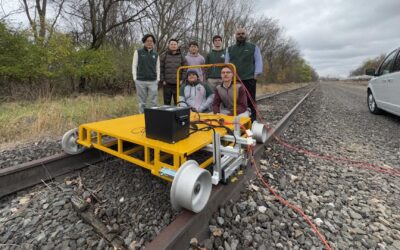The potential power of environmental data science hit David Flaspohler, dean of Michigan Tech’s College of Forest Resources and Environmental Science (CFRES), about four years ago during a conversation with his daughter. She was in the computer science Ph.D. program at the Massachusetts Institute of Technology doing research that involved predicting the location of deep-sea thermal vents. The vents lie hundreds of feet below the surface of the Gulf of California in complete darkness, where they support a unique ecosystem.
“She was using environmental data collected from remotely operated vehicles that sample ocean chemistry to allow her to trace the diluting water from each vent back to its origin,” Flaspohler said. “It was kind of an ‘aha!’ moment when I saw how this kind of environmental data could help address a lot of questions in the natural resources field.”
The first students to enroll in the bachelor’s degree in environmental data science program will begin their coursework in fall 2024. Proponents of the new degree program said Michigan Tech’s distinctive academic and physical environments are ideally suited for this category of data science studies.
For instance, environmental data science can answer questions about how forests respond to climate change related to temperature, moisture or invasive pests. Data science was also used to find out how the moose population of Isle Royale National Park reacted to the translocation of new wolves to the Lake Superior island in 2018.
Read the article in full here.




